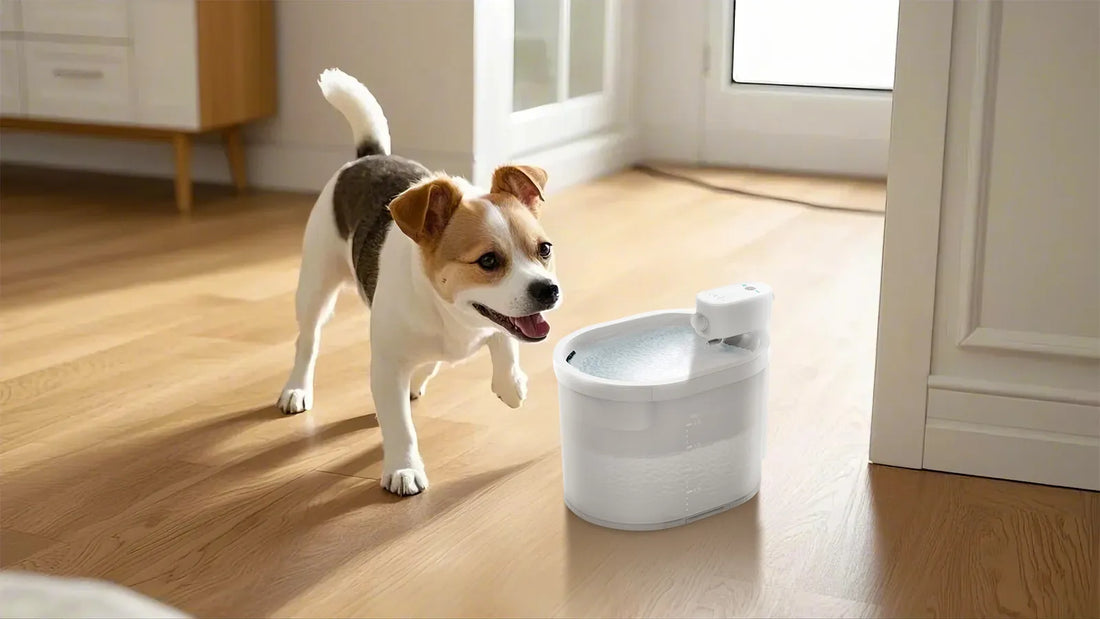If you've noticed your dog drinking a lot of water lately, you're not alone. Many pet owners observe this behavior and wonder if it's a cause for concern. While increased thirst can be a normal response to certain factors, it can also signal underlying health issues. Understanding the reasons behind your dog's excessive water intake is crucial for ensuring their well-being.
Normal Causes of Increased Water Consumption
Before jumping to conclusions, it's important to consider some common and harmless reasons why your dog might be drinking more water than usual. These include:
- Hot Weather: Dogs, like humans, tend to drink more water during warmer months to stay hydrated.
- Increased Activity: If your dog has been more active than usual, they may need extra water to replenish lost fluids.
- Dietary Changes: A diet high in salt or dry food can lead to increased thirst.
In these cases, your dog's behavior is likely a natural response to their environment or routine. However, if the excessive drinking persists or is accompanied by other symptoms, it's time to dig deeper.
Medical Conditions Linked to Excessive Thirst
Excessive water consumption, also known as polydipsia, can be a symptom of several medical conditions. Here are some of the most common:
Diabetes Mellitus
Diabetes is a condition where the body cannot regulate blood sugar levels effectively. Dogs with diabetes often drink more water to help flush excess sugar from their system. Other symptoms include increased urination, weight loss, and lethargy.
Kidney Disease
Kidneys play a vital role in filtering waste from the blood. When they are not functioning properly, dogs may drink more water to compensate. Signs of kidney disease include vomiting, loss of appetite, and changes in urination patterns.
Cushing's Disease
This condition occurs when the adrenal glands produce too much cortisol. Excessive thirst and urination are hallmark symptoms, along with a pot-bellied appearance and thinning skin.
Infections
Urinary tract infections (UTIs) and other infections can cause increased thirst as the body tries to fight off the invaders. Look for signs like discomfort during urination, foul-smelling urine, or fever.
Behavioral Factors to Consider
Sometimes, the reason behind your dog's excessive water intake is behavioral rather than medical. For example:
- Boredom: Dogs may drink more water simply because they have nothing else to do.
- Anxiety: Stress or anxiety can lead to increased thirst in some dogs.
- Learned Behavior: If your dog has learned that drinking water gets them attention, they may do it more often.
Addressing these behavioral issues can help reduce your dog's water consumption. Providing mental stimulation, creating a calm environment, and reinforcing positive behaviors are effective strategies.
When to Consult a Veterinarian
While occasional increases in water intake are normal, persistent or extreme thirst warrants a visit to the vet. Here are some red flags to watch for:
- Drinking water excessively for more than a few days.
- Accompanied by other symptoms like vomiting, diarrhea, or lethargy.
- Sudden changes in appetite or weight.
Your veterinarian can perform diagnostic tests to determine the underlying cause and recommend appropriate treatment. Early intervention is key to managing potential health issues effectively.
Tips for Monitoring Your Dog's Water Intake
Keeping track of how much water your dog drinks can provide valuable insights into their health. Here are some practical tips:
- Measure the amount of water you provide and note how much is left at the end of the day.
- Observe your dog's drinking habits and look for patterns or changes.
- Ensure fresh water is always available to prevent dehydration.
By staying vigilant, you can detect potential problems early and ensure your dog stays healthy and hydrated.
Understanding why your dog is drinking a lot of water is essential for their health and happiness. Whether it's a normal response to their environment or a sign of an underlying condition, being informed empowers you to take the best care of your furry friend. If you're ever in doubt, don't hesitate to consult your veterinarian for guidance.














